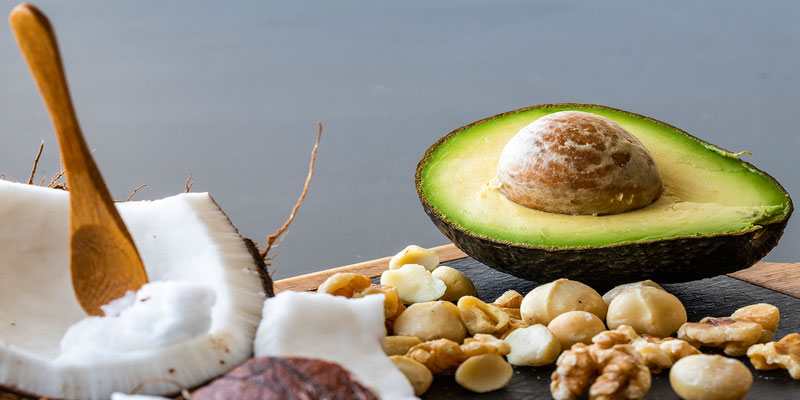Dandelion root is often seen as a simple garden weed, however, it is a powerful natural remedy that has been used for centuries in herbal medicine. Respected for centuries through different cultures for its health-improving qualities, this simple herb has more than meets the eye. The dandelion root which is full of vitamins, minerals, and antioxidants is used to promote liver health, detoxification and digestion. In traditional medicine, its natural diuretic effect is also emphasized. In present times, dandelion root remains in demand as a herbal product, revered for its all-round health benefits and versatility. In this article, we explore dandelion root, showing its capacity as a natural and health-enhancing remedy.

Dandelion Root Dosage: Finding Your Optimal Amount
Factors Influencing Dandelion Root Dosage
Several of the factors will be taken into account when it comes to deciding an individual's dosage of dandelion root extract. Primarily, age and body weight are the factors that determine what amount one should take. Mainly, the larger-sized individuals may need a bigger dose as compared to those who are smaller in their weight. The next factor indicating the dosage is the precise health condition that is being targeted. For example, a person wanting to remove toxins from the liver may require a higher dose than someone looking for general wellness. Apart from this, the route of administration of dandelion root, such as a tea or a capsule or a tincture or raw, can affect the strength and, thus, the dosage. Additionally, personal sensitivity to herbal supplements should be taken into account. For instance, one person could see positive effects with a small amount, but someone else can require a larger dose.
Recommended Dosage Ranges for Different Uses
The moderate dosage of dandelion root is usually the best for general health and wellness. This could span between 500 mg to 2000 mg in the form of capsules or 1-2 teaspoons of the dried root prepared as tea. When it comes to a certain health purpose including liver detoxification or digestive support, the dosage might be higher. In such cases, dosage can be up to 3000 milligrams per day or 3-4 cups of tea. It's necessary to start with a smaller dose and then progressively raise it to verify the body's reaction.
In case of tinctures, a rule of thumb is 1-2 teaspoons of tincture per day, mixed with water. But remember that you always have to read the product label or look for the advice of a healthcare professional before using these kinds of products, especially the concentrated forms like tinctures and extracts.
Being mindful that the dandelion root is mostly safe for the majority of people, seeking advice from a medical professional prior to starting a new supplement schedule would be a great idea, especially for those with existing health problems and those who take other medications.

Herbal Supplement Benefits of Dandelion Root
Nutritional Profile of Dandelion Root
Dandelion root offers a unique set of vitamins and minerals, among which are phosphorus, potassium, iron, zinc, manganese and thiamin. It is a source of vitamin A, C and K, and it also contains iron, and calcium, magnesium and potassium. By means of this action it increases the level of antioxidants in the body which is extremely important in fighting oxidative stress and inflammation. Inulin, the other component of the root, stands among the soluble fibers that are beneficial for the gut and the digestion as well.
Health Benefits Linked to Regular Consumption
Dandelion root is one of the most beneficial foodstuffs that can be regularly consumed and result in a lot of benefits. Its diuretic properties aid in flushing out toxins in the liver and keeping the kidneys healthy. It does this by helping the body produce more urine. This anti-inflammatory ingredient helps in reducing swelling and leads to the relief of pain specifically in arthritis. In addition to this, dandelion root is involved in maintaining healthy blood sugar levels and in enhancing insulin sensitivity which makes it a beneficial supplement for those managing diabetes. It has a high fiber content which is not only good for weight management but also helps in maintaining a general digestive health. The wide array of benefits described above confirm a dandelion root of a traditional herbal medication.
Integrating Dandelion Root into Your Daily Regimen
Different Forms of Dandelion Root for Consumption
The root of the dandelion is available in a variety of user-friendly forms, which serve different preferences and styles of life. The simple form is the dried form of a dandelion root, used for brewing herbal teas. It can be a calming and therapeutic beverage with real benefits that can be consumed every day. This raw form of dandelion is available in capsules and tinctures for those who want to take a more concentrated form. This provides a convenient and more potent dose. Along with dandelion root extract, which is the most common option, comes in liquid form and can be added easily to water or smoothies.
Creative Ways to Incorporate Dandelion into Your Diet
Dandelion root goes beyond teas and supplements and it can be used creatively in various ways to make your diet interesting. The powdered form of the root can be added to smoothies, soups, or even baked goods, so the nutritious boost is reached, yet the flavor is not altered significantly. For fresh dandelion root, which is available sometimes, roasts it and grinds it to make a coffee-free alternative. It can also be stir fried or used in stews and casseroles to give a nutty taste. It is so easy and fun to take advantage of dandelion root's health benefits by using these versatile ways.
Natural Remedy Usage: Safety and Precautions
Understanding Potential Side Effects
It is usually safe for most people, but overly high consumption may cause negative effects, especially for those who are particularly sensitive. Gas may be the cause of such problems as stomach discomfort, heartburn, and allergic reactions in people allergic to dandelion or other plants similar to it. It can also act as a natural diuretic, which might result in augmented urination, and if excessive, may disturb the electrolyte balance. Due to its impact on blood sugar levels, people with diabetes should consider controlling their blood sugar regularly while consuming dandelion root. Furthermore, its effect on the liver can pose a risk for those with gallbladder disease or liver disorders that can be potentially harmful.
When to Consult a Healthcare Professional
Health professional consulting is recommended before beginning any new supplement including dandelion root especially for individuals with pre-existing health conditions or those who take medications. This is an essential fact as the dandelion root can interfere with medications like diuretics, blood thinners, and drugs for diabetes. People expecting or breastfeeding should also consult their doctors before applying dandelion root. A healthcare provider can be consulted on which dosage is appropriate and possible risks can be weighed out, thus, the use of dandelion root as a natural remedy is both safe and beneficial.
Conclusion
Dandelion root is an important source of health benefits from its bioactive substances and nutritional riches. Whilst it is generally safe for most people, one has to ensure that the dosage is prescribed correctly, possible side effects should be taken into consideration and medical advice must be sorted out in time. Dandelion root can be incorporated into the diet as a simple natural approach to improving the whole bodys wellness. It goes without saying that, just like any other supplement, its use should be considered with wisdom in order to make sure that the supplement is added to a balanced diet and a healthy lifestyle.







